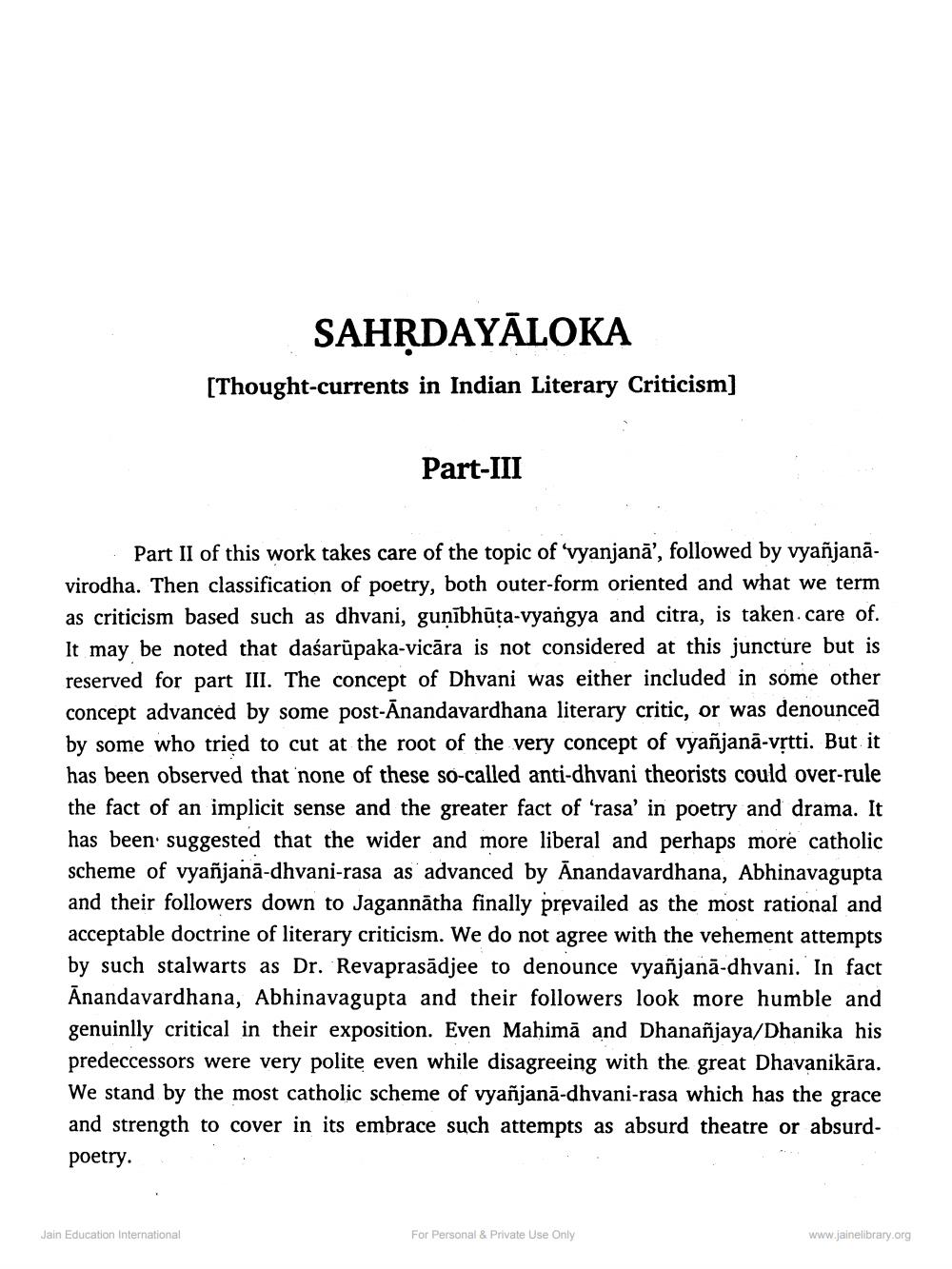________________
SAHRDAYĀLOKA [Thought-currents in Indian Literary Criticism]
Part-III
: Part II of this work takes care of the topic of vyanjanā', followed by vyañjanā. virodha. Then classification of poetry, both outer-form oriented and what we term as criticism based such as dhvani, gunībhūta-vyangya and citra, is taken care of. It may be noted that dasarūpaka-vicāra is not considered at this juncture but is reserved for part III. The concept of Dhvani was either included in some other concept advanced by some post-Anandavardhana literary critic, or was denounced by some who tried to cut at the root of the very concept of vyañjanā-vrtti. But it has been observed that none of these so-called anti-dhvani theorists could over-rule the fact of an implicit sense and the greater fact of 'rasa' in poetry and drama. It has been suggested that the wider and more liberal and perhaps more catholic scheme of vyañjanā-dhvani-rasa as advanced by Anandavardhana, Abhinavagupta and their followers down to Jagannātha finally prevailed as the most rational and acceptable doctrine of literary criticism. We do not agree with the vehement attempts by such stalwarts as Dr. Revaprasādjee to denounce vyañjanā-dhvani. In fact Anandavardhana, Abhinavagupta and their followers look more humble and genuinlly critical in their exposition. Even Mahimā and Dhanañjaya/Dhanika his predeccessors were very polite even while disagreeing with the great Dhavanikāra. We stand by the most catholic scheme of vyañjanā-dhvani-rasa which has the grace and strength to cover in its embrace such attempts as absurd theatre or absurdpoetry.
Jain Education International
For Personal & Private Use Only
www.jainelibrary.org




